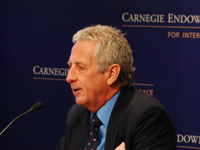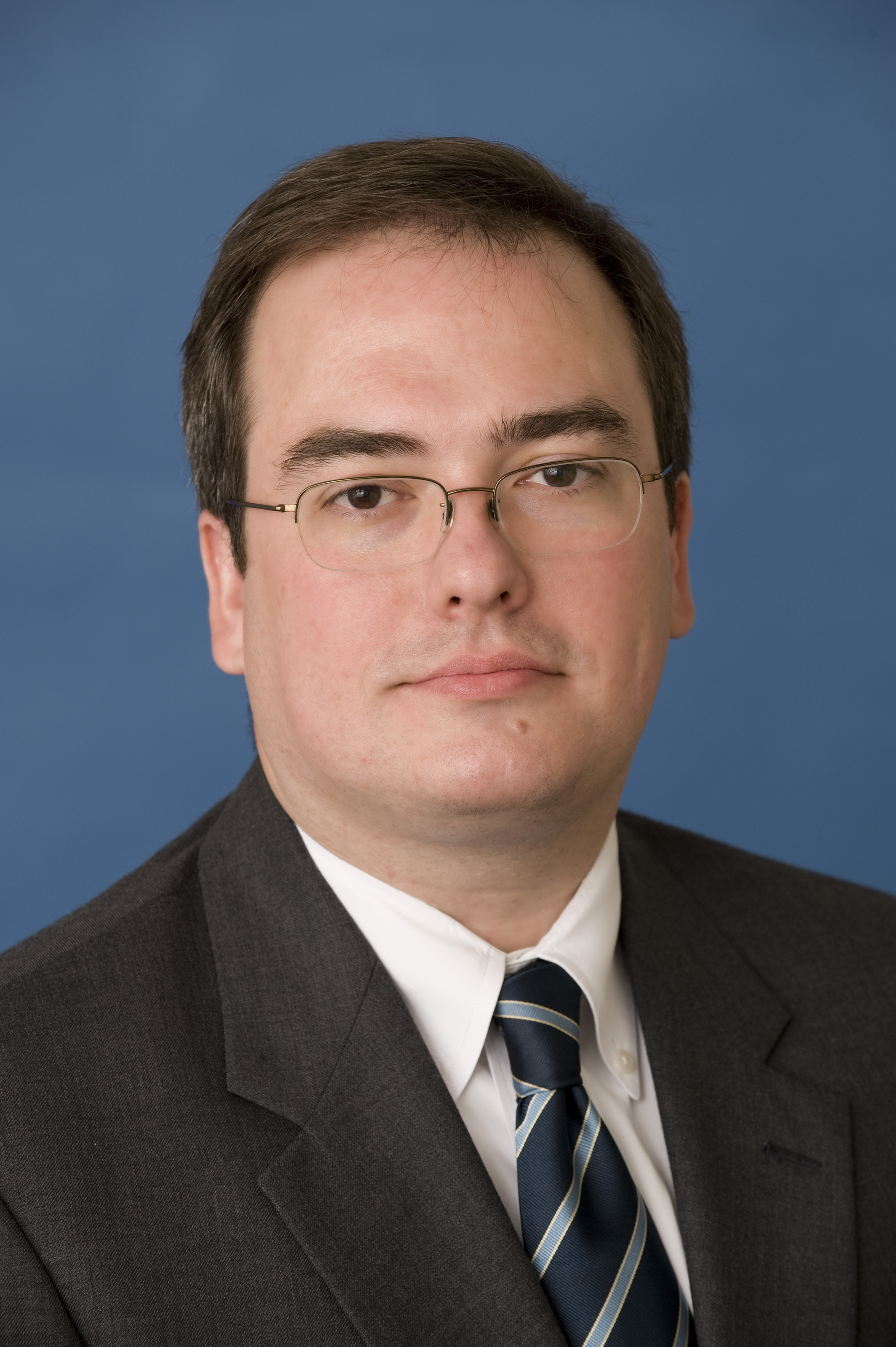{
"authors": [
"Robert Lacey",
"Christopher Boucek"
],
"type": "event",
"centerAffiliationAll": "dc",
"centers": [
"Carnegie Endowment for International Peace",
"Malcolm H. Kerr Carnegie Middle East Center"
],
"collections": [
"Arab Awakening"
],
"englishNewsletterAll": "menaTransitions",
"nonEnglishNewsletterAll": "",
"primaryCenter": "Carnegie Endowment for International Peace",
"programAffiliation": "MEP",
"programs": [
"Middle East"
],
"projects": [],
"regions": [
"Middle East",
"Saudi Arabia",
"Gulf"
],
"topics": [
"Political Reform"
]
}
Will Tahrir Come to Saudi Arabia?
Thu, March 3rd, 2011
Washington, D.C.
Historian Robert Lacey, author of the critically acclaimed works, The Kingdom and Inside the Kingdom, discussed the future of the Saudi state. Christopher Boucek moderated.
The strategic and spiritual significance of the Kingdom
Saudi Arabia controls 20 percent of global oil reserves and holds the fourth-largest natural gas reserves. As the largest repository of fossil fuels in the world, Saudi Arabia derives extraordinary political and economic leverage through the production and export of oil, Lacey explained. In addition to its economic significance, the Kingdom is the spiritual center of the Muslim world. The holy cities of Mecca and Medina attract millions of religious pilgrims every year.
Tensions between tradition and modernity
Rapid economic development—fueled by Saudi Arabia’s abundant petroleum reserves—has led to the sometimes reluctant modernization of a tribal-based Bedouin society. Lacey noted that the arrival of McDonald’s restaurants and other symbols of Western consumerism has been met with resistance by Saudi Arabia’s conservative religious establishment, which views itself as the guardian of traditional moral values and social conventions.
Impending royal succession
The health of 86-year-old King Abdullah bin Abdul-Aziz has deteriorated considerably in recent years, fueling speculation that a royal succession is imminent. Two of King Abdullah’s younger brothers—Deputy Prime Minister Prince Nayef and Riyadh’s governor, Prince Salman—are viewed as likely contenders for the Saudi throne. Lacey outlined three factors that will influence the selection of the Kingdom’s next leader:
- Seniority: Seniority has historically been a determining factor in the line of succession, which is restricted to the sons of Ibn Saud, the first of the Kingdom’s monarchs.
- Competence: According to Lacey, the horizontal structure of the royal family tree ensures that merit and leadership ability will play a major role in determining King Abdullah’s successor. Whereas Western monarchies—which have historically produced fewer heirs—tend to transfer power vertically from fathers to sons, the next Saudi king will be selected from among Abdullah’s many eligible siblings. With multiple candidates competing for the throne, the royal family will consider their relative merits in selecting the prince who will succeed Abdullah.
- Mother’s lineage: Another factor weighing heavily in the choice of successor is the matrilineal heritage of the heirs. According to Lacey, maintaining the “purity” of the Saud bloodline is of great importance to the royal family, and several princes are considered ineligible due to the ethnicity of their foreign-born mothers.
The Future of Reform
Although Saudi society remains deeply conservative, King Abdullah has developed a reputation as a reformer. He has poured billions of dollars into modernizing initiatives intended to strengthen Saudi Arabia’s educational system and promote technological innovation. Lacey added that he has also taken steps to support the empowerment of women in a society that has traditionally enforced strict gender segregation. Abdullah’s reforms have been resisted by conservative members of the royal family—including Prince Nayef—and Lacey suggested that Saudi Arabia’s next king could seek to reverse Abdullah’s liberalizing agenda. He also noted that many of the concerns and fears some observers have about Prince Nayef today are very similar to what was said about King Abdullah 20 years ago.
Abdullah’s Concessions
As popular uprisings toppled other authoritarian rulers in Tunisia and Egypt, King Abdullah hastily announced a package of economic concessions apparently aimed at preempting similar unrest in Saudi Arabia:
- A $37 billion social spending package: After returning from a three-month medical leave in the United States Morocco in February, King Abdullah unveiled a $37 billion package of concessions, including salary increases, unemployment benefits, affordable public housing, and other social welfare measures designed to alleviate the economic burdens on lower- and middle-income Saudis. Lacey predicted that this “bribe” may successfully insulate the Saudi regime from regional unrest.
- A precursor to political change: Lacey suggested that King Abdullah may use economic concessions as a stepping stone for political reforms. He pointed to rumors that the king is considering a number of changes including a cabinet reshuffle; reducing the level of executive oversight over the council of ministers; and decentralizing power by delegating more authority to regional governors. If implemented, these political reforms would facilitate Saudi Arabia’s transition from absolute to constitutional monarchy, Lacey said.
Social Conservatism as a Buffer against Change
Despite the fact that tens of thousands of young Saudis study abroad in Western countries and are more exposed to liberal democratic values than ever before, Saudi Arabia remains a highly traditional society. For the foreseeable future, Lacey predicted that high levels of social conservatism will serve as a buffer against the popular uprisings that have brought major political changes to other Arab countries. Even though a group of Facebook activists has called for protests in Saudi Arabia on March 11, Lacey said that large-scale demonstrations are unlikely to materialize.
- Conservative youth: In Tunisia, Egypt, and other countries that have witnessed popular uprisings, demands for political reform emanated primarily from a rising generation of politically aware and economically frustrated young people. However, Lacey noted that Saudi Arabia’s youth remain deeply conservative and are therefore unlikely to support calls for social and political change.
- Backlash to Abdullah’s reforms: Citing an opinion poll conducted by the British Embassy in Saudi Arabia prior to the uprisings in Tunisia and Egypt, Lacey said strong evidence exists that a majority of Saudis are opposed to reform. The polling data indicated that only 20 percent of Saudis support political and social change; 20 percent favor a continuation of the status quo; and 60 percent believe that reforms implemented by King Abdullah have gone too far.
Carnegie does not take institutional positions on public policy issues; the views represented herein are those of the author(s) and do not necessarily reflect the views of Carnegie, its staff, or its trustees.
